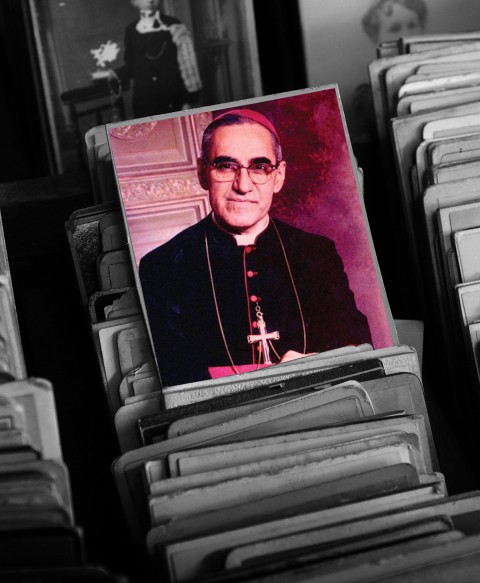Caught up in the sweep of history
When I am troubled by the times in which we live, I turn to Óscar Romero.

(Century illustration / Source images: public domain & Unsplash)
We live in horrifying times, times that feel like they demand a response from us. It seems like every week there’s something new—an outbreak of violence, a report that puts climate change further and further into apocalyptic territory. These feel like everyday things, at least in part because many of them are ongoing, with no inciting event to pin your concern on. In other words: horror itself feels like business as usual. We feel called to action, but even that feels diffuse and strange. What kind of action? What kind of attention or care could possibly meet this ongoing moment? For an answer, I turn to Archbishop Óscar Romero.
In a November 1977 homily, Romero referred to God as a God of history, a wellspring of time. When he said this, El Salvador was hurtling toward civil war, Romero had been archbishop for less than a year, and his friend Rutilio Grande had been dead at the hands of unknown assassins for six months. You might argue that in those six months, Romero had been swept up into history—living during not a time but this time, realizing he held not only a responsibility to his fellow Christians but this very specific responsibility, shaped around his historical moment and circumstance. History, for Romero, had gone from an abstract concept to a living force, a force with its finger on his pulse, a force calling his name just as impatiently and in the same voice as God.
They may as well be the same thing. Romero describes history as omnipresent, gathering us all into its sweep, even “the tiniest child, even the nameless campesino who harvests coffee.” It doesn’t give you a choice about being involved in it; it accounts for every atom. With a God and a history so meticulous, so inescapable, Romero’s response of living into it, embracing its challenges, seems the only way to live in it at all.




